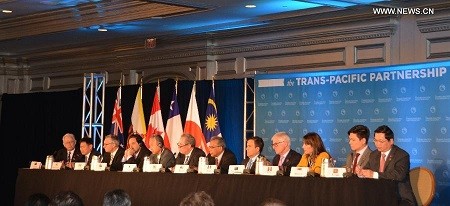According to U.S.-based Chinese political news outlet Duowei, the recently inked Trans-Pacific Partnership (TPP) could taint China-U.S. ties and subsequently damage international markets.
On Oct. 5, 12 Pacific Rim countries reached an agreement on the deal that was five years in the making. China is notably absent in the U.S.-led TPP, which aims to enhance economic growth and address trade concerns.
Regarded by some as the economic version of NATO, the agreement is forecast to boost the influence of U.S. in Asia amid growing competition with the world's second largest economy. The TPP is also expected to establish the biggest free trade area in the world.
Duowei reported that U.S. President Barack Obama was able to make the Congress legislate the deal because he cited that he fears the possibility of China taking over the rules of international trade.
The report further said that the deal's disadvantages will outweigh the benefits it could provide to U.S.-China relations, adding that the TPP could mark as a symbol of souring bilateral relations.
The news outlet also believes that the U.S. is giving an economic pressure to contain China, allowing its government to elevate control over regional nations with having direct contact.
Additionally, Duowei noted that as the Americans were not afraid of the Soviet Union during the Cold War, they do not fear Chinese communism as well.
The report also stated that while China has made its efforts to create a win-win situation, the other party showed reluctance, highlighting the Western attitude of being arrogant and short-sighted.
Duowei cited that another loser from the deal is the World Trade Organization, whose one major function is to enforce rules constraining protectionism.
The report predicted that the agreement could end up damaging international markets as well as the global economic order.



























